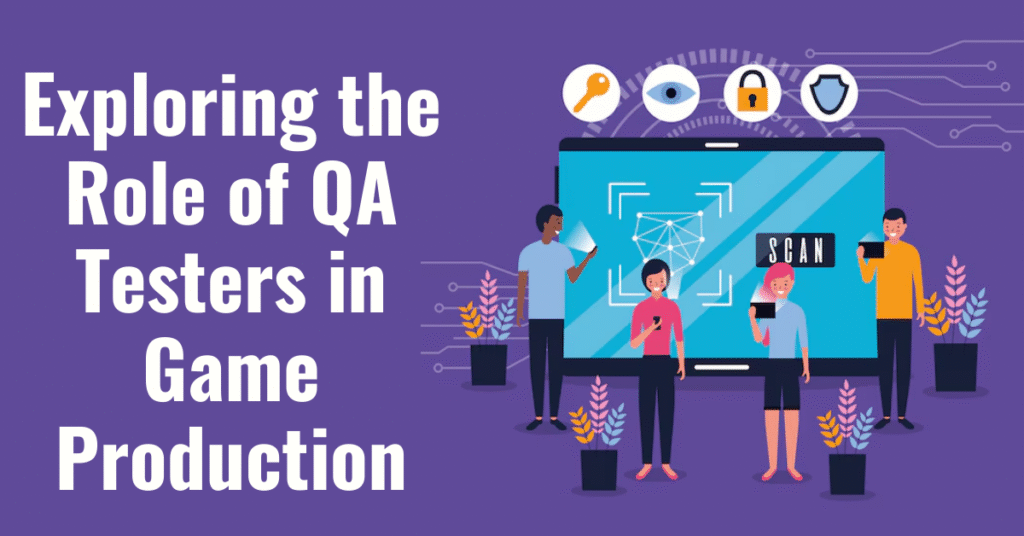
For many devoted gamers the development of the game has turned into a natural evolution. Technical skill and gaming knowledge, together with a vision for fun, novel and satisfying play, are all necessary for creative and successful game making. Being a developer isn’t just about a desire of games. It requires industrial expertise as well as an industrial mindset. This is how players become game makers.
Game Development Industry
Before starting, have some idea of the game development industry. Games of all genres, across all platforms, on any production method. Keep these industry highlights in mind:Programmers, designers, artists, writers, and producers are all game developers.Mobile, PC, console and VR, AR game developers are all part of the game development ecosystem. However each platform may have its own challenges and opportunities.
Firms and Industries: Nintendo, Blizzard, and indies are included as game developers. All they have different requirements, sizes of teams, development methods.
Transitioning from Gamer to Game Developer:
1. Learn game development basics
Knowledge of game development is needed if you are to become a developer.Learn C#, C++, and Python; they are all game developers tools. Take on major game engine, such as Unity or Unreal Engine.Games Design Principles: Game design skills matter. You can explore the thinking of game mechanics, level design, storytelling and gameplay. Some books, seminars and tutorials on game design may help.
Test Game Development: Utilize your experience by doing small things such as projects or join game jams. Game production first hand practices following essential skills include coding, graphics, physics, logic.
2. Create a Work Portfolio
A Work Portfolio is a place to do just that, to show off your game making skills.
• Personal projects: Make quick games. Maybe smartphone app or 2D platformer.
• Show Your Skills: Add games, prototypes as well as software development projects to your portfolio. Show how much of your programming, design, or art is involved with each project.Become an open source, independent developer of games. It gives you credibility and industry buzz.
3. Specialize and learn
There are different game development jobs and you need different expertise for them. Pick your passion and get good at it.
• It is important to learn target language and framework such as Unity and Unreal Engine and if you like coding.
• We should all learn 2D and 3D modeling, animation, UI/UX design, etc. as creative people. Game production tools being used widely are Illustrator, Blender and Photoshop.
• Engaging gameplay loops, level design and balancing patterns may be learnt by system and mechanism designers.Project management, budgeting and teamwork are the things gamemakers should study.
4. Gather the game industry relationships.Networking is a necessary switch when you decide to go to game development. They may connect you to employment, collaborations and mentorships.
• Participate in game development forums, Discord and social media. It offers advice, support and networking.
• Attend gamedev conferences: GDC, PAX, meetups… talk to industry professionals, get them to check out your work, get you in front of people!
• Join with game developers, artists and designers. It expands your network and your thinking.
5. Stay tuned in to track industry trends and tools.
The Gaming Industry changes quickly so the tools, technology and trends must be current.
• See how VR, AR, and blockchain are transforming game making.
• Learn about game engines, platforms and tools that are well known. Most prominent gaming engines are HTML5, Unreal Engine, Unity etc.
• Keep studying and practicing: Continuous learning counts. Online lessons, tutorials, and new game ideas to practice.
6. Promote Yourself and Work
It’s important building your own brand as you grow your skillset and portfolio for gaming industry exposure.
• With a personal website or portfolio you can show off your work. A professional resume for employers and co workers is a well designed website.
• Socialize Your Work: Twitter, LinkedIn and Instagram are where to share, discuss and network.
• Write tutorials or blogs: Blogs, Articles, and Tutorials to help gamers and increase developer reputation.
Conclusion
Playing to being a game developer is exciting, work, learning and perseverance. With fundamental skills, some great dorkware portfolio, great networking and industry knowledge you can make your gaming passion a lucrative career. With the right mindset and dedication, you can help forge an ever changing game development environment and succeed.